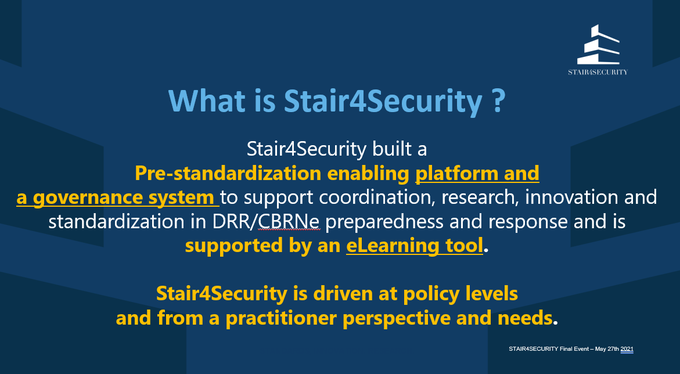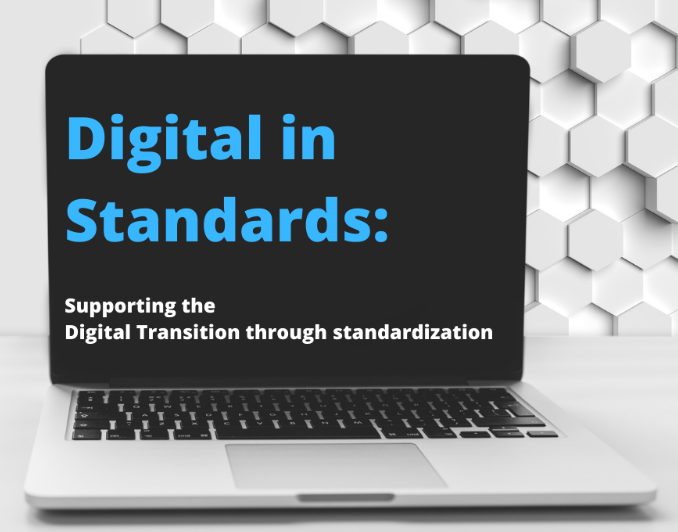CEN Published New Guidelines (ISO/TS?82304-2) on Health & Wellness Apps to Sort Best from the Rest
From counting calories to tracing COVID-19, there are hundreds of thousands of health and wellness apps on the market. However, many have access to highly sensitive personal information, whilst others may offer advice that is not always supported by scientific evidence. To effectively evaluate the quality and reliability of such apps, a new technical specification has just been published.
CEN ISO/TS?82304-2 ‘Health software — Part 2: Health and wellness apps—Quality and reliability’ brings together and builds on guidelines and requirements for apps by many local and national health organisations around the world to ensure they are safe, reliable, and effective. Recommended by the European Union in their European toolkit for COVID 19 tracing apps to "filter out qualitative and trustworthy health apps", the guidance provides an internationally-agreed set of specifications to assess the apps, with a scoring methodology that gives a 'traffic light' themed label. The Technical Specification will help the industry for health apps realize its potential in managing chronic diseases, tackling unhealthy lifestyles, and supporting ageing populations.
DIN, DKE & VDI developing the German Standardization Roadmap for Circular Economy
Together with the German Federal Ministry for the Environment, Nature Conservation and Nuclear Safety (BMU), the German Institute for Standardization (DIN) and the German Commission for Electrical, Electronic & Information Technologies (DKE) of DIN and VDE and the Association of German Engineers (VDI) have announced the launch of the German Standardization Roadmap Circular Economy. The aim of the Standardization Roadmap is to provide an overview of the status quo of standardization in the field of Circular Economy, describe the requirements and challenges for seven key topics, and identify possible concrete needs for action for future standards and specifications.
Essential support for climate targets: The Circular Economy is of particular importance in achieving the goals of the Green Deal and the Climate Change Act 2021. To achieve the ambitious climate protection targets, new and revised technical rules for the Circular Economy are now needed. The Standardization Roadmap Circular Economy will set the path for this, thus driving forward the green transformation of Germany and Europe.
CEN Published New Guidelines (ISO/TS?82304-2) on Health & Wellness Apps to Sort Best from the Rest
From counting calories to tracing COVID-19, there are hundreds of thousands of health and wellness apps on the market. However, many have access to highly sensitive personal information, whilst others may offer advice that is not always supported by scientific evidence. To effectively evaluate the quality and reliability of such apps, a new technical specification has just been published.
CEN ISO/TS?82304-2 ‘Health software — Part 2: Health and wellness apps—Quality and reliability’ brings together and builds on guidelines and requirements for apps by many local and national health organisations around the world to ensure they are safe, reliable, and effective. Recommended by the European Union in their European toolkit for COVID 19 tracing apps to "filter out qualitative and trustworthy health apps", the guidance provides an internationally-agreed set of specifications to assess the apps, with a scoring methodology that gives a 'traffic light' themed label. The Technical Specification will help the industry for health apps realize its potential in managing chronic diseases, tackling unhealthy lifestyles, and supporting ageing populations.
Stair4Security (Standards, Innovation and Research for Security) Project: Conclusions and Results
STAIR4SECURITY (Standards, Innovation and Research for Security) is a project funded by the European Union’s Horizon 2020 research and innovation programme. The project has been coordinated by CEN with the involvement of four National Standardization Bodies (AFNOR, ASI, DIN and SIS), together with the Chairperson of CEN/TC 391 'Societal and Citizen Security', TFC Research and Innovation Limited, National University of Ireland Galway, and KPMG Future Analytics. The project started in January 2019 and ended in June 2021.
The project developed a digital platform for better coordination of research-related standardization activities in the security sector, and to meet the growing needs of operators in the fields of Chemical-Biological-Radiological-Nuclear and small- sized quantity Explosives (CBRNe) and Disaster Resilience/Disaster Risk Reduction (DRR). The platform builds on a legacy of identified projects and provides a “single entry point” for any query related to pre-standardization and standardization in the CBRNe/DRR sectors.
New EN 17507 to help Improve Measuring the Emissions of Road Vehicles
Improving the way to measure particulate emissions of road vehicles, and thus contributing to reducing transport pollution? This is now possible, thanks to recently published standard EN 17507 ‘Road vehicles - Portable Emission Measuring Systems (PEMS) - Performance assessment’.
This standard, developed by 'CEN/TC 301 - Road vehicles', aims to qualify the measurement uncertainties of portable particle emission measurement systems (PEMS) used in real driving tests. The qualification of the different components of PEMS is of particular importance in the context of the tightening of particulate emissions thresholds. EU legislation foresees the definition of tolerated emission thresholds by taking measurements of an uncertainty factor, based on the objective precision of the portable measuring means. Thanks to the new standard, this precision is now set to improve and the uncertainty factor to be reduced. The new EN 17507 provides the elements to assess this progression. With this new standard, CEN – the European Committee for European Standardization - brings a new contribution of European standardization to the efforts to address transport pollution, a major challenge in the context of the EU Green Deal.
CEN Published New Guidelines (ISO/TS?82304-2) on Health & Wellness Apps to Sort Best from the Rest
From counting calories to tracing COVID-19, there are hundreds of thousands of health and wellness apps on the market. However, many have access to highly sensitive personal information, whilst others may offer advice that is not always supported by scientific evidence. To effectively evaluate the quality and reliability of such apps, a new technical specification has just been published.
CEN ISO/TS?82304-2 ‘Health software — Part 2: Health and wellness apps—Quality and reliability’ brings together and builds on guidelines and requirements for apps by many local and national health organisations around the world to ensure they are safe, reliable, and effective. Recommended by the European Union in their European toolkit for COVID 19 tracing apps to "filter out qualitative and trustworthy health apps", the guidance provides an internationally-agreed set of specifications to assess the apps, with a scoring methodology that gives a 'traffic light' themed label. The Technical Specification will help the industry for health apps realize its potential in managing chronic diseases, tackling unhealthy lifestyles, and supporting ageing populations.
European Standards play an indispensable role in the market development for biobased products. The standards developed by CEN/TC 411 cover a variety of areas, such as:
-
measurement/analysis methods: demonstrating biobased levels
-
sustainability criteria
-
terminology and communication: streamlining concepts and claims.
In order to provide an overview of standards for biobased products, NEN, the Dutch National Standardization Body, which holds the Secretariat of CEN TC/411, developed a handy infographic.
The insurance business is rapidly migrating from paper-based processes to the digitalization and automation of electronic processes. These electronic business processes take place between independent organizations, which leads to a variety of information formats being used. To facilitate this information exchange, there is a need for the standardization of the data formats being used.
The European standards developed by CEN/TC 445 ‘Digital information Interchange in the Insurance Industry’ are focused on the information exchange between insurance companies and their customers and market partners, e.g., brokers, portals, service providers, and other insurers. In November 2020, CEN/TC 445 published the European standard EN 17419-1:2020, which specifies the transfer of electronic documents.
As a follow-up to this Standard, CEN/TC 445 recently published CEN/TR 17419-2:2021 'Implementation Specification for EN 17419-1'. This European technical report describes a concrete specification for an implementation of the EN 17419-1 in a microservice architecture, using REST/JSON based on the Open API 3.0 specification. In addition, it contains a complete API definition for the services implementing the transfer of documents.
DIN, DKE & VDI developing the German Standardization Roadmap for Circular Economy
Together with the German Federal Ministry for the Environment, Nature Conservation and Nuclear Safety (BMU), the German Institute for Standardization (DIN) and the German Commission for Electrical, Electronic & Information Technologies (DKE) of DIN and VDE and the Association of German Engineers (VDI) have announced the launch of the German Standardization Roadmap Circular Economy. The aim of the Standardization Roadmap is to provide an overview of the status quo of standardization in the field of Circular Economy, describe the requirements and challenges for seven key topics, and identify possible concrete needs for action for future standards and specifications.
-
Essential support for climate targets: The Circular Economy is of particular importance in achieving the goals of the Green Deal and the Climate Change Act 2021. To achieve the ambitious climate protection targets, new and revised technical rules for the Circular Economy are now needed. The Standardization Roadmap Circular Economy will set the path for this, thus driving forward the green transformation of Germany and Europe.
-
Seven key topics set: The Roadmap will focus on the following key topics: Electrotechnology and ICT, batteries, packaging, plastics, textiles, construction & municipalities, and digitalization/business models/management. These are based on the key topics of the EU's Circular Economy Action Plan. With a German Standardization Roadmap for Circular Economy, specific national standardisation needs will be identified with the aim of feeding them into the European and international standardisation bodies.
The Digital Transition is an opportunity for Europe to boost its competitiveness in global markets. European Standards play a key role in this ambition, seeing as they:
-
promote security and safety for products and services
-
build trust in emerging technologies
-
work to find consensus and enable state of the art solutions for Europe
This brochure is meant to highlight not just what exists for the future of standardization in the digital transition, but to look at the new and exciting fields that standardization plans to explore.















